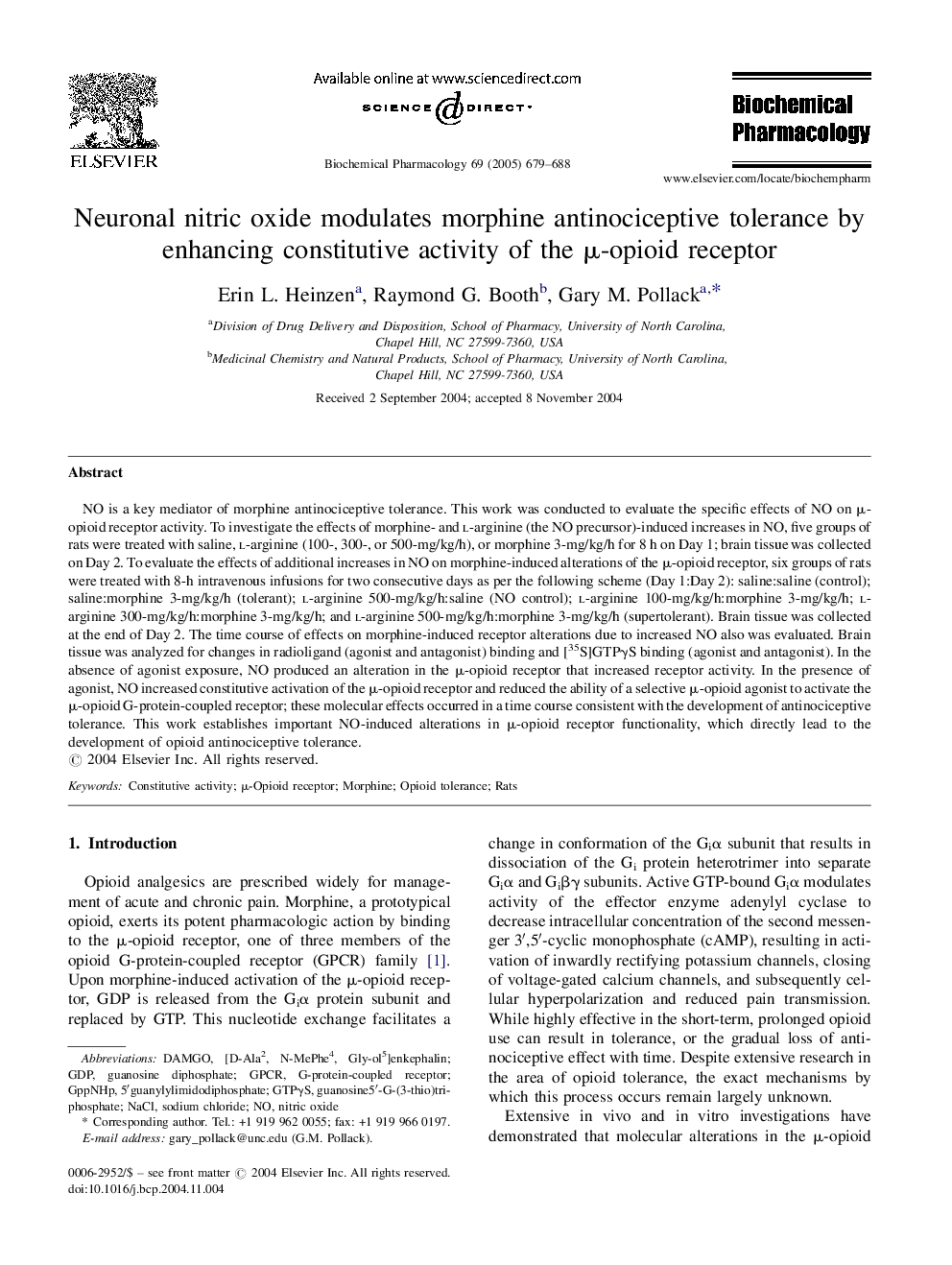| Article ID | Journal | Published Year | Pages | File Type |
|---|---|---|---|---|
| 9002320 | Biochemical Pharmacology | 2005 | 10 Pages |
Abstract
NO is a key mediator of morphine antinociceptive tolerance. This work was conducted to evaluate the specific effects of NO on μ-opioid receptor activity. To investigate the effects of morphine- and l-arginine (the NO precursor)-induced increases in NO, five groups of rats were treated with saline, l-arginine (100-, 300-, or 500-mg/kg/h), or morphine 3-mg/kg/h for 8 h on Day 1; brain tissue was collected on Day 2. To evaluate the effects of additional increases in NO on morphine-induced alterations of the μ-opioid receptor, six groups of rats were treated with 8-h intravenous infusions for two consecutive days as per the following scheme (Day 1:Day 2): saline:saline (control); saline:morphine 3-mg/kg/h (tolerant); l-arginine 500-mg/kg/h:saline (NO control); l-arginine 100-mg/kg/h:morphine 3-mg/kg/h; l-arginine 300-mg/kg/h:morphine 3-mg/kg/h; and l-arginine 500-mg/kg/h:morphine 3-mg/kg/h (supertolerant). Brain tissue was collected at the end of Day 2. The time course of effects on morphine-induced receptor alterations due to increased NO also was evaluated. Brain tissue was analyzed for changes in radioligand (agonist and antagonist) binding and [35S]GTPγS binding (agonist and antagonist). In the absence of agonist exposure, NO produced an alteration in the μ-opioid receptor that increased receptor activity. In the presence of agonist, NO increased constitutive activation of the μ-opioid receptor and reduced the ability of a selective μ-opioid agonist to activate the μ-opioid G-protein-coupled receptor; these molecular effects occurred in a time course consistent with the development of antinociceptive tolerance. This work establishes important NO-induced alterations in μ-opioid receptor functionality, which directly lead to the development of opioid antinociceptive tolerance.
Keywords
Related Topics
Health Sciences
Pharmacology, Toxicology and Pharmaceutical Science
Pharmacology
Authors
Erin L. Heinzen, Raymond G. Booth, Gary M. Pollack,
